- Region
- Águilas
- Alhama de Murcia
- Jumilla
- Lorca
- Los Alcázares
- Mazarrón
- San Javier
-
ALL AREAS & TOWNS
- AREAS
- SOUTH WEST
- MAR MENOR
- MURCIA CITY & CENTRAL
- NORTH & NORTH WEST
- TOWNS
- Abanilla
- Abarán
- Aguilas
- Alamillo
- Alcantarilla
- Aledo
- Alhama de Murcia
- Archena
- Balsicas
- Blanca
- Bolnuevo
- Bullas
- Cañadas del Romero
- Cabo de Palos
- Calasparra
- Camping Bolnuevo
- Campo De Ricote
- Camposol
- Canada De La Lena
- Caravaca de la Cruz
- Cartagena
- Cehegin
- Ceuti
- Cieza
- Condado de Alhama
- Corvera
- Costa Cálida
- Cuevas De Almanzora
- Cuevas de Reyllo
- El Carmoli
- El Mojon
- El Molino (Puerto Lumbreras)
- El Pareton / Cantareros
- El Raso
- El Valle Golf Resort
- Fortuna
- Fuente Alamo
- Hacienda del Alamo Golf Resort
- Hacienda Riquelme Golf Resort
- Isla Plana
- Islas Menores & Mar de Cristal
- Jumilla
- La Azohia
- La Charca
- La Manga Club
- La Manga del Mar Menor
- La Pinilla
- La Puebla
- La Torre
- La Torre Golf Resort
- La Unión
- Las Palas
- Las Ramblas
- Las Ramblas Golf
- Las Torres de Cotillas
- Leiva
- Librilla
- Lo Pagan
- Lo Santiago
- Lorca
- Lorquí
- Los Alcázares
- Los Balcones
- Los Belones
- Los Canovas
- Los Nietos
- Los Perez (Tallante)
- Los Urrutias
- Los Ventorrillos
- Mar De Cristal
- Mar Menor
- Mar Menor Golf Resort
- Mazarrón
- Mazarrón Country Club
- Molina de Segura
- Moratalla
- Mula
- Murcia City
- Murcia Property
- Pareton
- Peraleja Golf Resort
- Perin
- Pilar de la Horadada
- Pinar de Campoverde
- Pinoso
- Playa Honda
- Playa Honda / Playa Paraíso
- Pliego
- Portmán
- Pozo Estrecho
- Puerto de Mazarrón
- Puerto Lumbreras
- Puntas De Calnegre
- Region of Murcia
- Ricote
- Roda Golf Resort
- Roldan
- Roldan and Lo Ferro
- San Javier
- San Pedro del Pinatar
- Santiago de la Ribera
- Sierra Espuña
- Sucina
- Tallante
- Terrazas de la Torre Golf Resort
- Torre Pacheco
- Totana
- What's On Weekly Bulletin
- Yecla


- EDITIONS:
 Spanish News Today
Spanish News Today
 Alicante Today
Alicante Today
 Andalucia Today
Andalucia Today
Jumilla wine route, Bodegas Viña Elena
Tradition meets modernity at a family-run winery in Jumilla
Bodegas Viña Elena is the southernmost winery on the Jumilla wine route, and is a family-run concern which was founded in 1948 by Francisco Pacheco, the late grandfather of the members of the current management team.
In the mid-20th century the Pacheco wine-making operation was a modest one, but the business has since grown substantially and consistently and now employs technology which its founder could not have dreamed of in order to maintain a high standard of production. Despite these developments, though, Viña Elena is still immensely proud of its family heritage, and strives to transmit this to both staff and visitors to the Bodega.
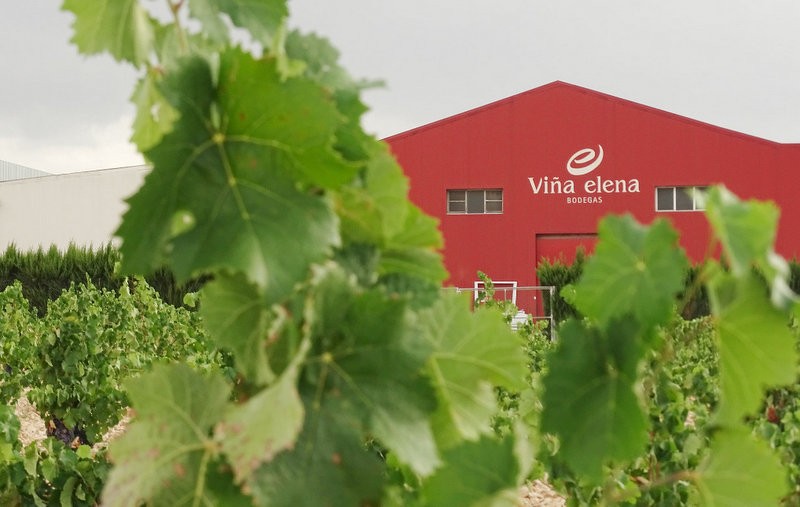
The vineyards
The location of Viña Elena provides a perfect environment for the Monastrell grape variety which is predominant throughout the Jumilla Denomination of Origin in terms of soil composition and climate, enabling the fruit to mature with full flavor and colour. This, needless to say, is the main pillar on which the winery’s reputation for quality products is built, although at the same time other varieties are also grown with a view to producing not only red wines but also whites and rosés.
However, some of these varieties are also grown on other plots of land away from the winery, including the high ground of an area known as Finca El Calvario and an unusual dry-land plantation of Cabernet Sauvignon.
The newest dryland Monastrell vineyards are located in south facing plots on sun-kissed slopes and are covered with rough chalk stones, which provide good drainage and store up moisture from the scarce rainfall.
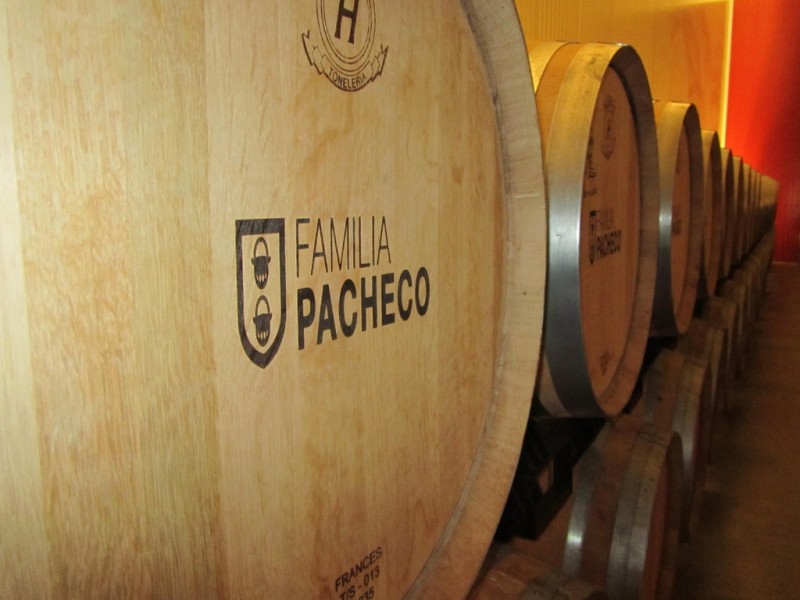
The wines of Viña Elena
Viña Elena now produces approximately 450,000 bottles of wine per year, exporting around 60% of them. The main export destinations include Russia and various northern European countries.
Familia Pacheco Roble: a richly fruity red wine combining the traditional Jumilla Monastrell grape with the floral and aromatic tones of Syrah and Cabernet Sauvignon.
Familia Pacheco Selección: a wine which was created as an act of homage to the founder of the business, Paco Pacheco, combining the traditional virtues of Monastrell reds with the benefits of maturing both in barrels and in the bottle. 70% Monastrell, 20% Cabernet Sauvignon, 10% Syrah.
Familia Pacheco Organic: A red wine produced in full compliance with EU organic production regulations. 80% Monastrell, 20% Syrah.
Familia Pacheco Blanco: a fruity white wine made from grapes of the Macabeo and Airén varieties, perfect as an aperitif, or with fish, seafoods or paella.The 20% of Airén grape added to the 80% of Macabeo adds a slightly nutty colour tone to the wine and the merest hint of green apples. Macabeo blends well with other varieties, this combination aromatic, fruity and smooth, but with a backbite of acidity that belies its alluring sweet smell.
Familia Pacheco Rosado: a rosé, another example of how Viña Elena has broadened its product range in recent years. 50% Tempranillo, 50% Syrah.
Paco Pacheco Dulce: a sweet wine made entirely from Monastrell grapes, ideal with desserts or cheese.
Los Cucos de la Alberquilla: an unusual venture in the area of Jumilla, this is a red wine made entirely from grapes of the Cabernet Sauvignon variety. In deference to Paco Pacheco’s preference for Monastrell, this product does not bear the family name but is named instead after the “Cucos”, or makeshift rural stone shelters which in the past were used in adverse weather conditions by farmers and shepherds.
Síntesis: another wine made wholly using Monastrell grapes, all of them hand-picked from some of the oldest vines belonging to Viña Elena. The yield of these vines is low in quantity but high in quality.
Bruma del Estrecho de Marín: this is an unusual project in which Elena Pacheco and Isio Ramos aimed at making 100% Monastrell wines from select DO Jumilla vineyards. Using vineyard husbandry and winemaking techniques acquired from local viticulturists, they skilfully craft their wines to reach their full expression with regard to microclimate, soil, location, and the age of the vines.
The seven wines are named after the plots of land on which the grapes are grown: Paraje Marín, Paraje Las Chozas, Parcela Navajuelos, Parcela Particiones, Parcela Vereda, Parcela Mandiles and Paraje Las Encebras.
Single Varietals (Garnacha and Syrah): when grape varieties from other regions are grown in Jumilla, they acquire distinctive characteristics due to its unique climate and soil. Aware of this differentiating factor, Viña Elena aims to demonstrate just how special Jumilla’s single-varietal wines really are.
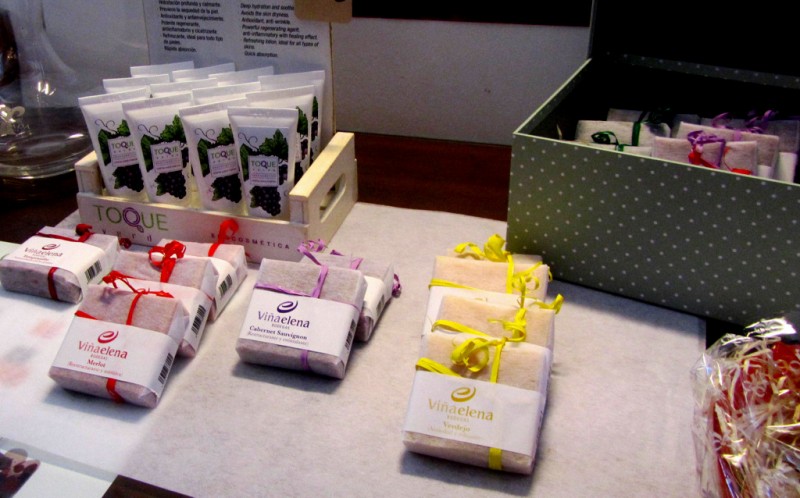
Other products
Vermucho: this typical vermouth is made from wine mixed with absinthe and other herbs, and is a tradition which has been revived at Viña Elena in modern packaging in order to attract younger generations. The logo of the brand is, appropriately, an absinthe leaf.
Emi olive oil: a surprisingly light virgin oil made from olives of the “arbequina” variety which grow alongside the vines belonging to Viña Elena. Originally olive oil was a logical by-product, reflecting the centuries-old tradition by which those smallholders who cultivated grapes on their land in the north of Murcia also kept olive trees, but now the winery has dedicated olive groves where state-of-the-art harvesting technology is employed.
Emi roasted almonds: a typical Mediterranean product, roasted with a little salt. Variety is provided by almonds roasted with locally grown paprika, and all of the almonds come from the 110 hectares of plantations in the Jumilla area.
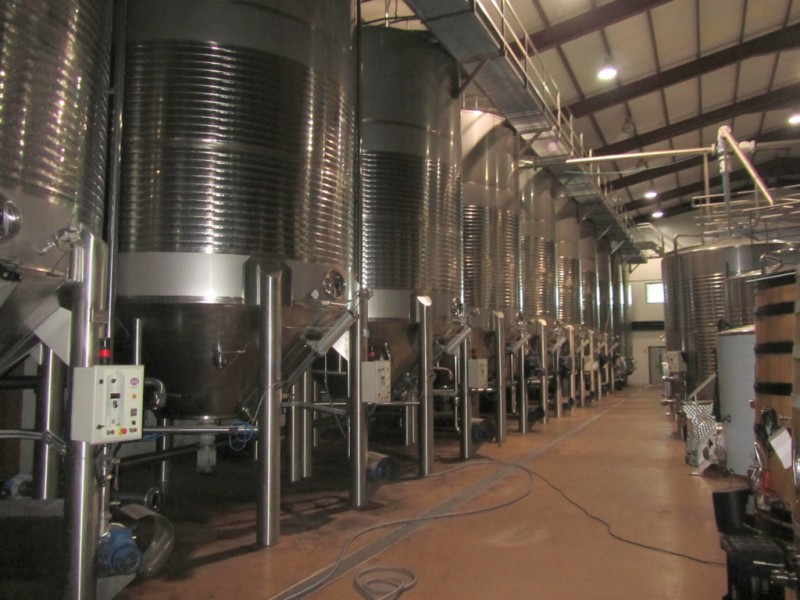
Visiting Bodegas Viña Elena
Viña Elena is one of the many wineries where great efforts are made to ensure that members of the public (and potential customers!) are made to feel welcome and offered the opportunity to learn more about the products and how they are made. Tours are offered in English or Spanish at 11.30 every morning of the week except on Sundays, and come in a variety of shapes and sizes.
The standard 3-hour visit costs 10 euros per head and consists of a visit to the vineyards before entering the winery itself. Here, after passing a classic motorbike which is one of the many Pacheco family heirlooms on display, visitors are given an overview of the entire production process from grape to bottle, and can see how the introduction of new technology has altered wine-making in Jumilla since Paco Pacheco founded the winery almost 70 years ago. Some of the old cement storage and maturing tanks are still in use, providing greater minerality to the end products, while alongside are the more modern stainless steel tanks, some of which hold up to 85,000 litres.
From the production facilities visitors make their way back to the reception area and the extremely well-stocked shop, where those seeking gifts can choose not only from the wines produced here but also other products including vermouth, olive oil, balsamic vinegar and even soap and hand cream enhanced with essence of Monastrell and other grape varieties. However, before making their purchases visitors are subjected to further temptation with the tasting of three wines and the house olive oil, along with typical local aperitifs and snacks including the Emi almonds.
A more extended tour, priced at 14 euros per head, includes a visit to the Finca El Calvario as well as all of the elements of the standard visit: sturdy footwear is advisable!
In addition, a full country meal can be provided alongside the standard tour at a combined price of 25 euros per person. The menu includes smoked cod with peppers and tomato, “lomo de orza” (a pork dish) with country-style garlic potatoes, a cheese platter and a sweet wine, as well as three Viña Elena wines to accompany the different courses.
Two more expensive menus are also available to accompany the winery tour, priced at 45 and 65 euros per head, while during the summer evening dinners are held.
For those whose interest lies only in the rural environment, rather than in the products of Viña Elena, the Bodega also welcomes visitors who wish simply to take a walk through the vineyards and other properties on which olives and almonds are grown, and provides a map containing a recommended route.
Various other options are available at different times of the year, including grape-tasting during the picking season, taking part in the picking, open-air cinema and numerous other ways to enjoy the countryside and vineyards.
Timetables
Guided tours are available every day except on Sundays from 9.00 to 13.30.
The winery shop opens from Monday to Friday between 8.00 and 14.00 and from 16.00 to 19.30.
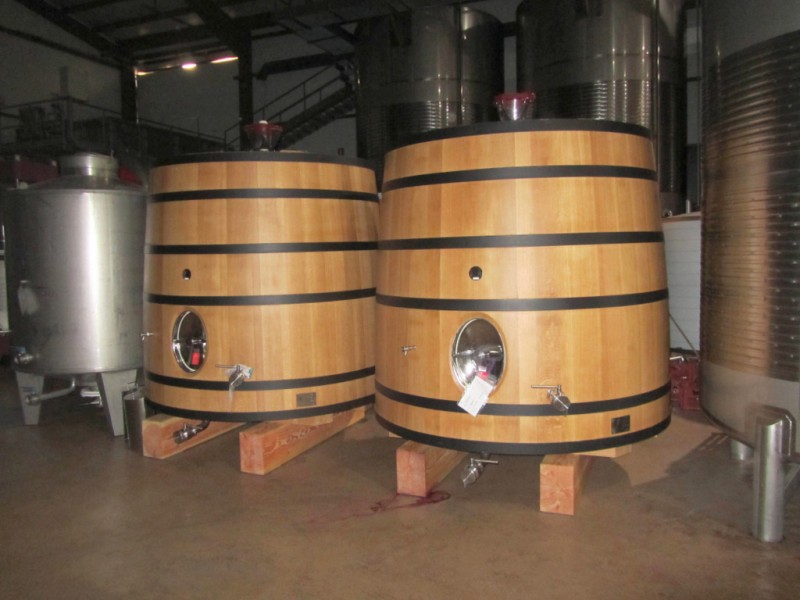
How to get to Bodegas Viña Elena
The winery is located on the N-344 road, which used to be the main road leading to Jumilla and now runs almost parallel to the A-33 motorway. Those approaching from the south should take the exit at kilometre 19 of the A-33 and continue northwards on the N-344, while those coming from the town of Jumilla should leave the motorway at kilometre 25 and head south.
Bodegas Viña Elena is located roughly half way between these two junctions, and although it is not especially well advertised along the roadside it is practically the only cluster of buildings on this stretch of the N-344. Be warned: you may see the old name of the winery, Pacheco, before the current name!
Contact details
Address: Bodegas Viña Elena, Carretera N-344 km 52,5, Paraje "Estrecho de Marín", 30520 Jumilla, Región de Murcia.
Telephone: (+34) 968 781340
Email: info@vinaelena.com
Guided tours: visitas@vinaelena.com, (+34 610 900220)
For more information about visiting Jumilla, including what's on, local news and all of the bodegas on the Jumilla wine route, visit the home page of Jumilla Today.
